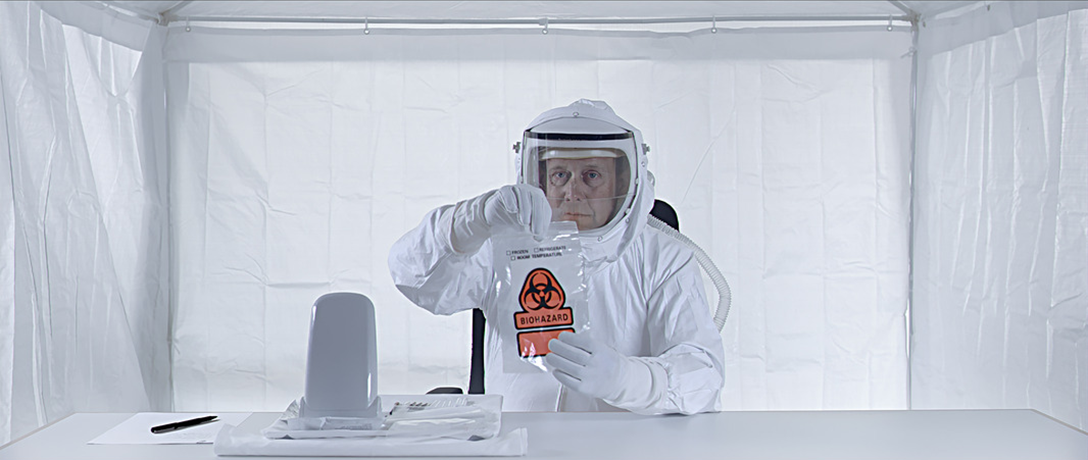The Visit
Nate von Zumwalt
You know that feeling of deliverance that arrives as the credits roll to a gripping horror film? It summons you out of the story, offering salvation from the dread. Yeah, you can forget about that relief when it comes to these films. Frankly, it’s hard to find refuge in reality when the stories themselves are real. Rather than meddling in the hackneyed realm of “based on a true story” films, we’re cutting away the ambiguity and looking directly to the documentary form to find the most twisted true stories to recently come through Sundance. Happy Halloween!
The Imposter
More than any film on this list, The Imposter strikes audiences as a near impossibility. Expertly directed by Bart Layton and blending rich reenactments with innovative interviewing styles, The Imposter recalls the disappearance of a 13-year-old boy in San Antonio, Texas. After vanishing in 1994, he reemerges three years later in Spain with horrendous stories of being kidnapped and enslaved. But something feels askew, even amid the family’s exultation surrounding their relative’s survival…
CAPTIVATED: The Trials of Pamela Smart
“A small-town murder in New England became one of the highest-profile cases of the twentieth century. As the first fully televised court case, the Pamela Smart trial rattled the consciousness of America. From gavel to gavel, a nation tuned in, and reality TV was born.
“Unfolding with the suspense of a fiction film, CAPTIVATED: The Trials of Pamela Smart reexamines a case we thought we knew and cuts into deeper, hidden layers. With surgical precision, master filmmaker Jeremiah Zagar unmasks the role of the media in creating a skewed version of reality that the public now accepts as truth. Fascinating, sexy, and cunningly brilliant, CAPTIVATED makes us question everything we’re told as the line between journalism and entertainment continues to blur.” –David Courier
Room 237
Somewhere between the boisterous supporters and detractors of Stanley Kubrick’s polarizing 1980 film The Shining rests a gathering of conspirators who are dedicated to decoding the film’s secret messages. In Rodney Ascher’s documentary, Room 237, those messages touch on genocide, government corruption, and other historical distortions that obsessive Kubrick scholars testify are the real meaning behind The Shining.
(T)Error
In their feature debut, co-directors Lyric R. Cabral and David Felix Sutcliffe cleverly infiltrate a real life counterterrorism sting carried out by a veteran FBI informant known as Saeed Torres, or “Shariff.” But (T)Error’s marketing pitch that positions the film as the first of its kind is somehow less compelling than the opaque complexities that emerge each time the filmmakers peel back another layer in their narrative-driven investigation.
Much of (T)Error is either partially or entirely inscrutable. Its narrative, redolent of a spy thriller, depends on that murkiness. Questions never seem explicitly posed, and moments that should provoke fear are attenuated by the directors’ cunning ability to set them against the quotidian—Shariff watching television or waiting for his coffee to brew. But other things are clearer, and they provide just as much motivation to digest this striking work of documentary storytelling.
Welcome to Leith
Welcome to Leith follows along as infamous white supremacist Craig Cobb descends on the unassuming town of Leith, North Dakota (pop. 24), and begins buying up parcels of land. It’s not an unprecedented undertaking in North Dakota, but his plans are not aligned with those who have employed similar tactics in the region to cash in on the state’s oil boom. Instead, Cobb plans to develop a supremacist stronghold in Leith, and with his small troupe of neo-Nazis in tow they quickly begin terrorizing the town.
Welcome to Leith thrusts upon its viewers the uncomfortable collision of the First Amendment and unadulterated bigotry. It is without question a challenging watch, yet it becomes nearly impossible to avert one’s eyes.
The Visit
“Ever since the invention of radio and television, humans have been sending signals into outer space, announcing their existence to other civilizations. The Visit documents an event that has never taken place: humans’ first encounter with intelligent life from another world. Through tantalizing interviews with experts from NASA, United Nations, and the SETI (Search for Extraterrestrial Intelligence) Institute, among many others, acclaimed Danish filmmaker Michael Madsen constructs a chillingly believable scenario of first contact on Earth, beginning with the simplest of questions: Why are you here? How do you think? What do you see in humans that we don’t see in ourselves?” -HV







